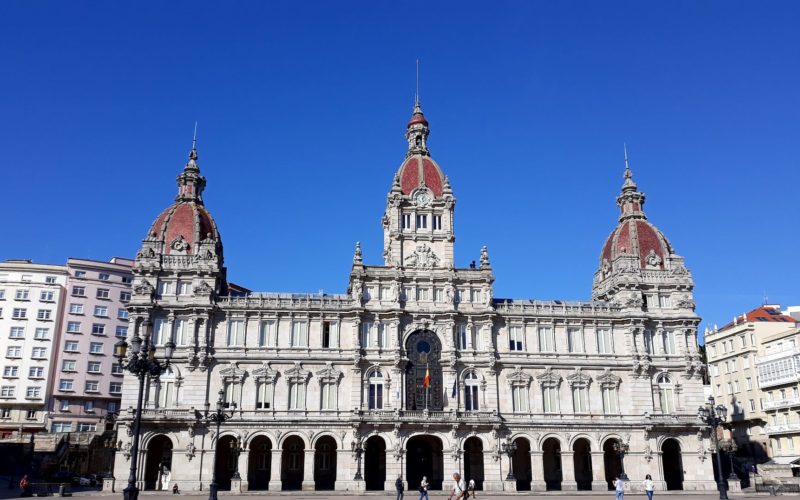In all honesty, as much as I went through the motions to get here, I don’t think I’d given much thought to the reality that here I’d be, in Spain! For someone with a propensity to overthink the small stuff, I tend to otherwise just cruise through life with a sense of blind optimism and a ‘she’ll be right’ attitude.
Two important firsts
Each autonomous region hosts an orientation for Auxiliaries in the first week of October. The orientation runs through all you need to know to start your life as an Auxiliaries and is delivered entirely in Spanish! However, a teacher from your allocated school will attend with you and pass on any information you need to know.
It is worthwhile before you even attend the orientation, to apply for your Tarjeta de Identidad de Entranjera (TIE), residency card as soon as you arrive in Spain. You have 30 days to organise this, otherwise you may find yourself heading home to reapply for your visa. It seems that nearly everyone, I’ve talked to has had different experiences and varying degrees of frustration with this process.
For me, I filled in an online appointment request that asked for my NIE number (this comes with your visa), name, email address and year of birth. I then selected a time and date for my appointment. I’m not entirely sure how necessary this is because turning up at my allotted appointment I had to take a ticket and wait my turn to be seen. When I eventually I got to the counter, the girl checked my name off the list and told me I needed to go to the Police Station.
For your TIE, not just any Police Station will do so make sure you find out exactly which one is the right one in your location. Here it’s the Police Headquarters of Galicia, Av. Porto da Coruña 7, La Coruña.

Get used to queuing
Now, I hate queuing and usually have a rule-of-thumb that there is nothing I want badly enough to stand in a line for hours. Unfortunately for me, there was a lot of queuing ahead if I wanted to stay here in Spain. My ticket at the Police Station put me 37th in line, only to eventually reach the end of that line to be given a different coloured ticket and start the waiting process all over again.
It took me three visits and a lot of waiting to finally be approved my TIE and without going into boring detail, I recommend being armed with copies of everything. Better to have it and not need it, then need it and not have it.

You will have to show proof-of-address which is issued by the local council. For this you will need:
- Proof of fee payment (this fee is paid at the bank, using Form 790 from the council)
- Nombriemente (letter of offer)
- Passport, with a copy of the visa page and arrive stamp
- A rental agreement or utility bill (I didn’t have either so needed to get a formed signed by my landlady, along with one of her utility bills and her ID card).
In addition to proof of address, you also need your TIE application form, passport, letter of offer and two passport-sized photos. Once you’ve been approved and thumb-printed, you will get a confirmation letter and then you wait a month to go back to the Police Station to collect your TIE card.
The second thing you need to do is open a bank account, with a Spanish Bank, so you can be paid. Arm yourself with all the above documentation and this ‘should’ be reasonably straight-forward.

Linking up with other Auxiliaries
A simple Google or Facebook search should put you onto groups in your local area. These are perfect platforms for getting advice, a great way to find and meet up with other Auxiliaries. It’s also where you find out what’s happening locally, and they often post opportunities for Private Lessons if you are looking to make a few extra Euros.
If like me, you ‘Googled’ Auxilliares de Conversáción before you left, you probably found that many of the posts had a consistent theme, one was that is not always easy, but the second is that even with its challenges, it’s worth it. It so is.
It might mean stepping outside your comfort zone but it’s an opportunity to learn what you’re truly made of, you get to experience a different culture, meet some amazing people and travel to a beautiful part of the world.
That to me is living the ‘–‘

Sounds like a pain but glad you made it and are ready to explore a new place!